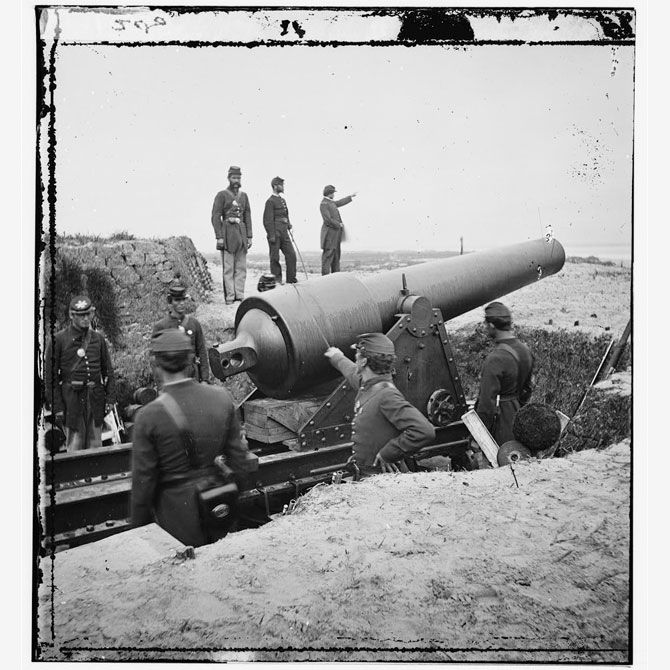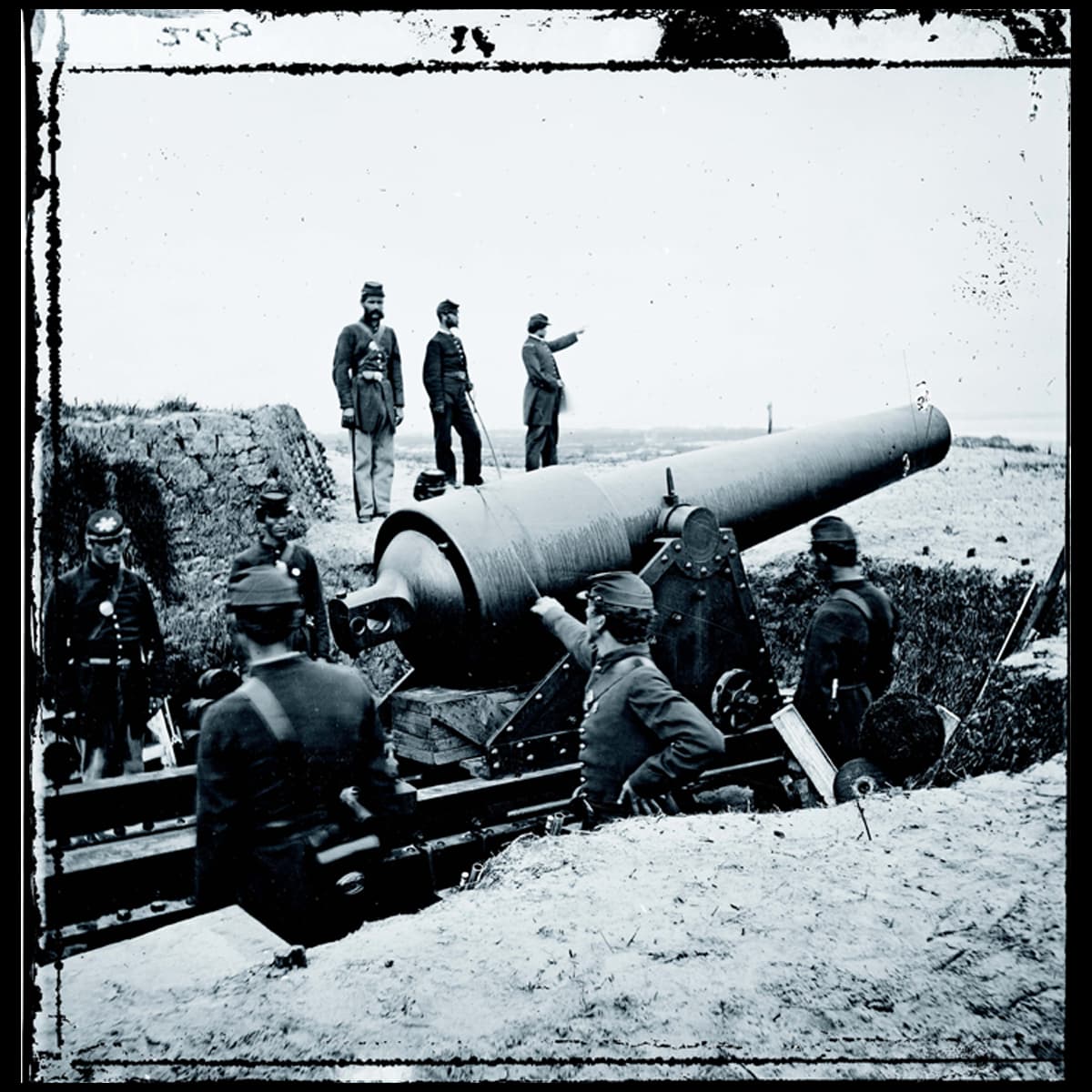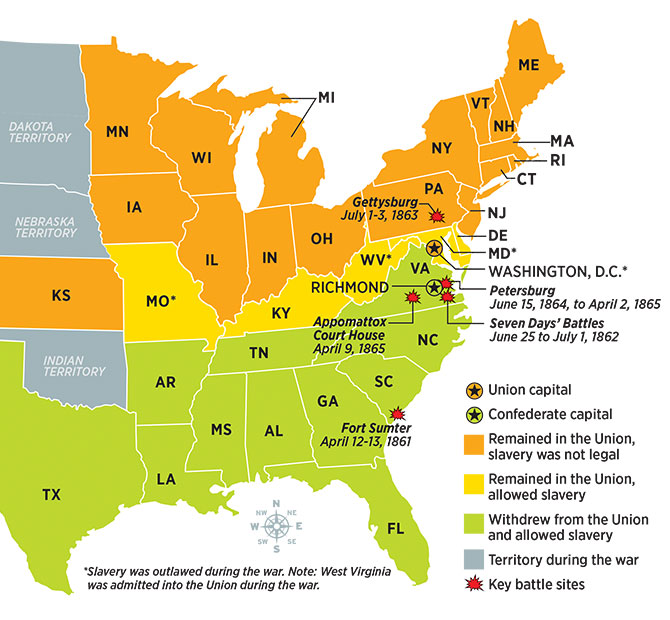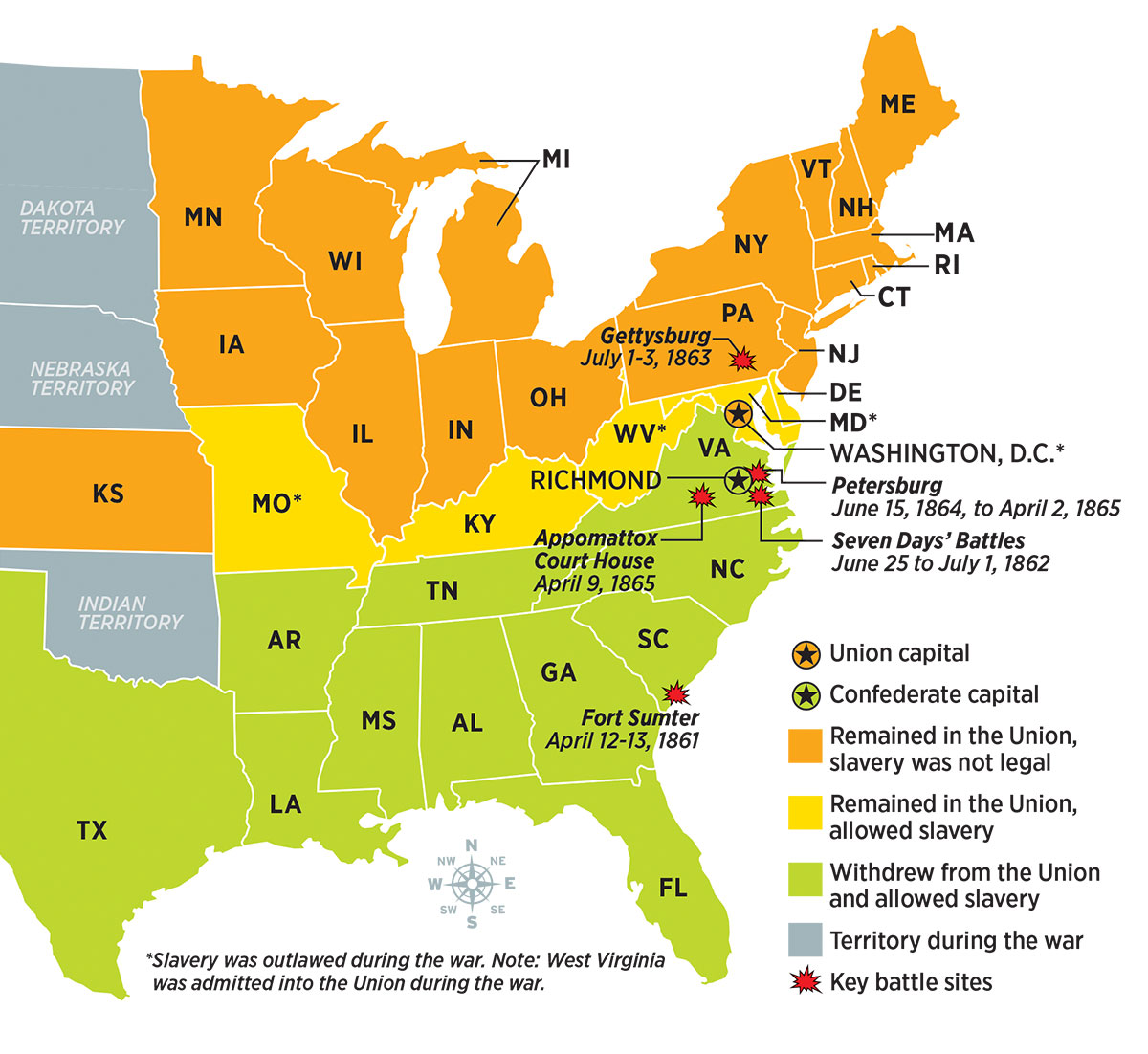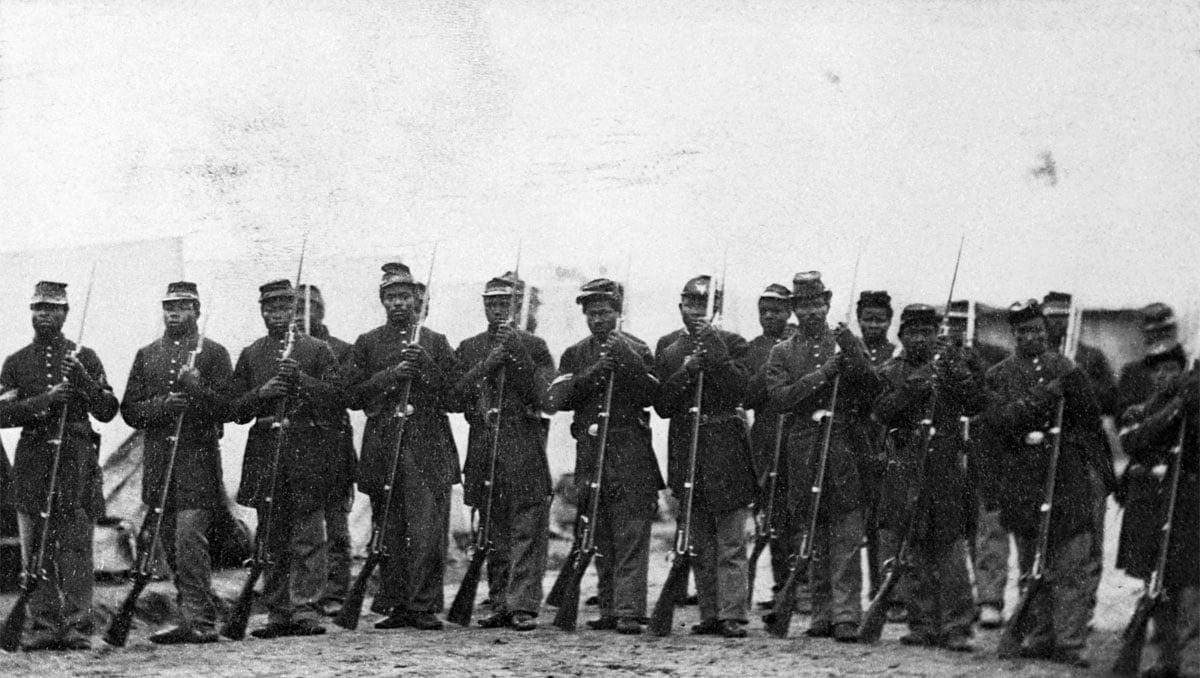You probably know that the Civil War began in April 1861 at Fort Sumter in South Carolina. Maybe you can even name the key leaders, battles, and issues for both the Union and the
The causes of the conflict—chiefly a clash between Northern and Southern states over slavery—are no mystery. By the mid-19th century, many Americans saw war as inevitable. Others assumed until the last minute that it could be avoided.
The election of Abraham Lincoln as President in 1860 lit the fuse of the long-delayed conflict. With the victory of this little-known Illinois lawyer who opposed the expansion of slavery, Southern
Here are 10 things about the Civil War that surprised people at the time—and still surprise people today.

